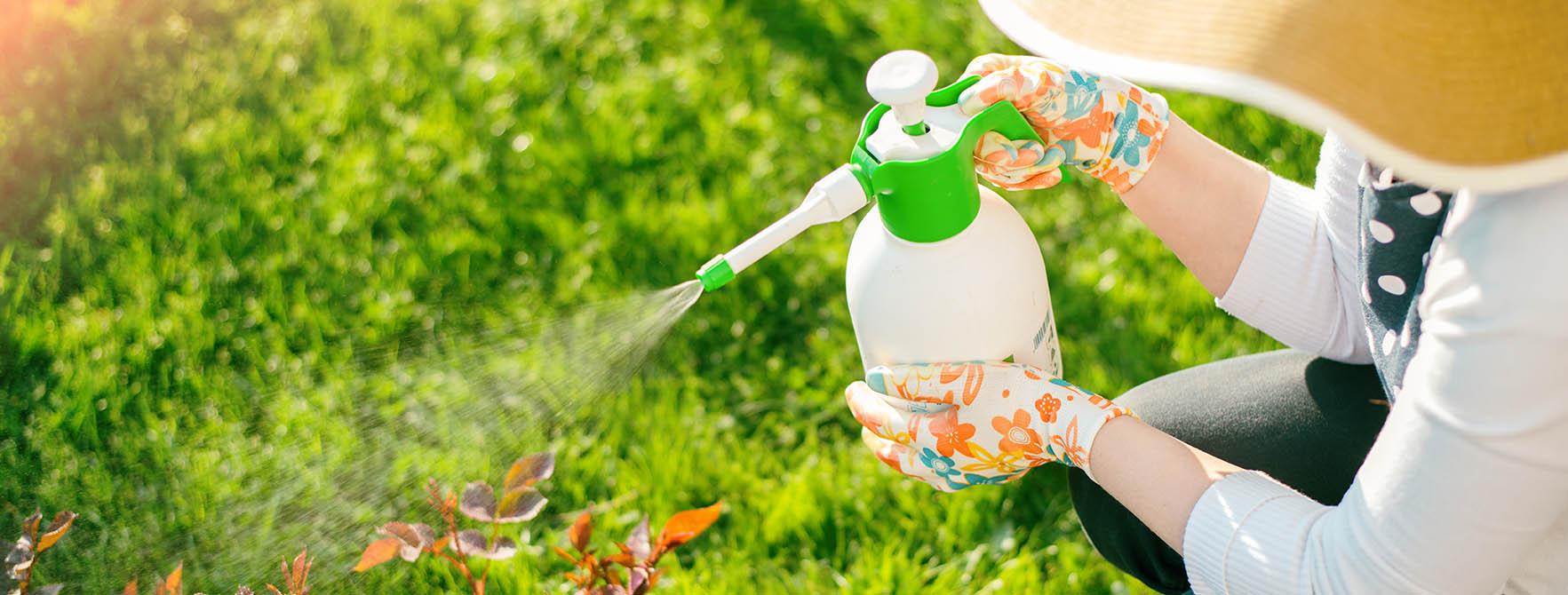Organic Pest Control:
Introducing organic pest control:
Are you tired of dealing with pesky insects in your garden or around your home? Well, look no further! Organic pest control is here to save the day, without harsh chemicals or harmful toxins.
Picture this: You’re enjoying a beautiful summer afternoon in your backyard, but suddenly, those annoying mosquitoes start buzzing around. Instead of reaching for a can of chemical-laden bug spray, why not try a more natural approach? Organic pest control offers effective solutions that are safe for you, your family, and the environment.
Imagine a world where you can enjoy the bounties of nature without worrying about harmful pesticides. With organic pest control, you can create a harmonious balance in your garden, where beneficial insects thrive, and unwanted pests are kept at bay. So, let’s dive into the fascinating world of organic pest control and discover how you can cultivate a pest-free environment naturally!

Organic Pest Control: Natural Solutions for a Healthy Home
Welcome to the ultimate guide on organic pest control! If you’re tired of using harmful chemicals to rid your home of pests, you’ve come to the right place. In this article, we’ll explore the power of natural solutions and how they can effectively keep pests at bay without compromising your health or the environment. Learn about the benefits of organic pest control, effective DIY methods, and how to maintain a pest-free home using eco-friendly alternatives. Say goodbye to toxic pesticides and hello to a healthier, pest-free living space!
The Benefits of Organic Pest Control
When it comes to pest control, going organic has numerous benefits. Firstly, organic pest control methods prioritize the safety of humans, pets, and the environment. Conventional chemical pesticides often contain harmful ingredients that can have long-term health effects and contaminate the air and water sources. By choosing organic alternatives, you’re protecting your loved ones and reducing your carbon footprint.
Secondly, organic pest control is more sustainable. Traditional pesticides not only harm pests but also kill beneficial insects such as bees, ladybugs, and butterflies. These helpful creatures play a vital role in maintaining the ecosystem and ensuring pollination. Organic methods target pests specifically without harming other beneficial insects, creating a balanced and sustainable natural environment.
Lastly, organic pest control methods are cost-effective in the long run. While organic solutions may require more effort upfront, they are often less expensive than repeatedly purchasing chemical pesticides. Plus, you can easily make organic remedies using common household ingredients, saving you money and reducing waste.
The Power of Essential Oils in Pest Control
Essential oils have gained popularity in recent years due to their natural potency and various health benefits. But did you know that they can also be effective in controlling pests? Many essential oils, such as lavender, peppermint, and citrus oils, contain compounds that repel insects. These oils work by disrupting the pests’ sensory receptors, making your home an unattractive environment for them.
One way to use essential oils for pest control is by creating a homemade spray. Simply mix a few drops of your desired essential oil with water in a spray bottle and apply it to areas where you’ve noticed pest activity. You can target common intruders like ants, mosquitoes, and flies. Not only does this method repel pests, but it also leaves your home smelling fresh and inviting.
If ants are causing havoc in your kitchen, consider using peppermint or citrus oil. These scents disrupt their communication and foraging patterns, deterring them from entering your living space. For mosquitoes and flies, try using lavender or eucalyptus oil. These scents are known to repel these pesky insects, keeping your outdoor gatherings bug-free and enjoyable.
Organic Pest Control vs. Chemical Pesticides
The debate between organic pest control and chemical pesticides has been ongoing for years. While chemical pesticides may offer quick results, they come with several drawbacks. Firstly, they can be harmful to humans and pets. Prolonged exposure to these chemicals can lead to respiratory issues, skin irritations, and even more severe health conditions. Moreover, chemical pesticides can contaminate the soil, water sources, and food, posing long-term hazards to the environment.
On the other hand, organic pest control offers a safer and more sustainable approach. Organic methods prioritize prevention, making your home less attractive to pests in the first place. By eliminating their access to food, water, and shelter, you create an inhospitable environment for pests. Additionally, organic methods like natural predators, traps, and barriers target pests specifically, reducing the risk of harm to beneficial insects and the ecosystem.
While organic pest control methods may require more time and effort, they provide long-term solutions without compromising your health or the environment. By adopting these methods, you can transform your home into a safe haven free from toxic chemicals and unwanted pests.
Creating a Pest-Free Home: Prevention and Maintenance
In addition to using organic pest control methods, prevention and maintenance play a crucial role in maintaining a pest-free home. By practicing simple habits and making a few adjustments, you can keep pests at bay and enjoy a healthy living space. Here are some tips:
Seal Entry Points
Pests often find their way into homes through cracks, gaps, and openings. Inspect your home thoroughly and seal any potential entry points. Use caulk or weatherstripping to seal gaps in windows, doors, and walls. Install door sweeps to keep pests from crawling under doors. By denying pests entry, you minimize the need for pest control measures.
Maintain Food Hygiene
Proper food storage and hygiene are essential in preventing pest infestations, especially in the kitchen. Store food in airtight containers to keep pests out. Regularly clean your kitchen, wiping up spills and crumbs promptly. Empty trash bins regularly and ensure they have tight-fitting lids. By eliminating food sources, you discourage pests from invading your space.
Remove Standing Water
Pests like mosquitoes and flies thrive in moist environments. Regularly check your home for standing water, both indoors and outdoors. Empty and clean pet bowls, bird baths, and plant saucers. Ensure that your gutters are clean and properly draining. By eliminating standing water, you reduce the breeding grounds for pests.
Keep a Tidy Yard
A well-maintained yard not only enhances your home’s curb appeal but also helps in pest prevention. Regularly mow the lawn, trim bushes, and remove debris. Pests are less likely to hide and breed in a clean and well-groomed environment. Additionally, consider planting pest-repellent plants like marigolds, lavender, and mint around your yard.
Hire a Professional
If you’re dealing with a persistent pest problem or require assistance in identifying and implementing organic pest control methods, it’s wise to hire a professional. Look for pest control companies that specialize in organic solutions and have a proven track record of eco-friendly practices. They have the knowledge and experience to tackle even the toughest infestations while prioritizing your health and the environment.
Note: This is just a part of the article. To read the full article, please refer to the original source.
Key Takeaways: “Organic pest control”
- Organic pest control focuses on using natural methods to manage pests.
- It avoids the use of harmful chemicals found in conventional pesticides.
- Some organic pest control methods include using beneficial insects, traps, and barriers.
- Planting companion plants and practicing good garden hygiene can also help control pests organically.
- Regular monitoring and early intervention are crucial for successful organic pest control.
Frequently Asked Questions
Welcome to our Frequently Asked Questions section on organic pest control. Here, we provide answers to common queries about using natural methods to keep pesky pests at bay. Read on to learn more!
Can organic pest control methods be as effective as chemical-based ones?
Absolutely! While chemical pesticides may offer quick results, organic pest control methods can be just as effective in the long run. Natural alternatives, such as neem oil, garlic spray, or beneficial insects like ladybugs, can help control pests without harming the environment or beneficial organisms. In fact, organic pest control methods often work by disrupting the pests’ life cycles, preventing them from reproducing and causing further damage.
By adopting organic pest control practices, you not only protect your plants and gardens, but also promote biodiversity and safeguard human health. Chemical-based pesticides can have adverse effects on water sources, the ecosystem, and even pose potential risks to humans and pets.
Does using organic pest control methods mean I won’t need to do anything?
While organic pest control can be highly effective, it does require active participation and regular monitoring. Implementing organic methods involves strategies like crop rotation, companion planting, and proper soil management, which help create an environment that is less favorable for pests. However, it’s important to stay vigilant and take preventive measures, such as removing weeds, regularly inspecting plants, and manually removing pests when necessary.
Remember, organic pest control is a holistic approach that focuses on long-term solutions rather than quick fixes. By incorporating these practices, you can establish a thriving ecosystem that minimizes pest problems while supporting the health and productivity of your plants.
Are organic pest control methods safe for pets and children?
Using organic pest control methods can indeed be safer for pets and children compared to chemical-based options. Since organic methods rely on natural substances and processes, they generally have lower toxicity levels and pose fewer health risks. However, it’s important to always read and follow the instructions provided by the organic pest control product manufacturer to ensure the utmost safety.
Additionally, some organic pest control methods, like introducing beneficial insects, can even be beneficial for the overall health of your garden. Beneficial insects, such as ladybugs, can help control pests without posing a threat to humans, pets, or other beneficial organisms.
What are some common organic pest control methods?
There are several effective organic pest control methods you can implement for a pest-free garden. Here are a few common ones:
– Biological controls: Introduce beneficial insects that prey on pests, such as ladybugs or praying mantises.
– Mechanical controls: Use physical barriers like nets or row covers to protect plants.
– Organic sprays: Make your own organic sprays using ingredients like neem oil, garlic, or chili peppers.
– Crop rotation: Rotate crops each season to prevent a buildup of pests that target specific plants.
– Companion planting: Plant certain crops together to naturally repel pests or attract beneficial insects.
By incorporating these methods into your gardening routine, you can effectively tackle pest problems while maintaining an eco-friendly and sustainable approach.
Where can I find organic pest control products?
Organic pest control products can be found at various garden centers, nurseries, and even online stores. Look for products that are certified organic and have clear instructions for use. You can also explore homemade remedies using common household ingredients. Be sure to do thorough research or consult with gardening experts to ensure you’re using safe and effective organic pest control methods.
Additionally, consider reaching out to local organic gardening or permaculture communities for recommendations and advice. They often have valuable insights and resources to help you locate the best organic pest control products for your specific needs.

Organic PEST CONTROL that really WORKS
Summary
So, remember, organic pest control is a natural and eco-friendly way to get rid of pests. Instead of using harmful chemicals, organic methods use plants, insects, and other natural solutions. This helps protect the environment and keeps your plants healthy. Some organic pest control methods include companion planting, using beneficial insects, and making homemade sprays. By practicing organic pest control, you can keep your garden thriving while also taking care of the planet. Give it a try and see the difference it makes!
